Mushrooms: the much misunderstood food
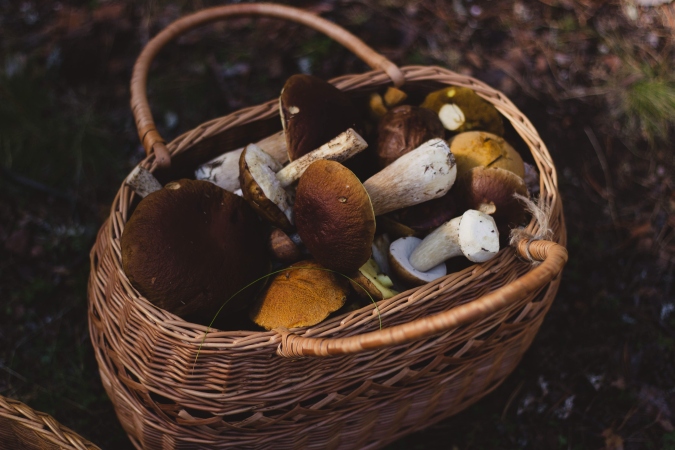
Mushrooms are a much misunderstood product of nature. This is a particularly acute problem in India, since India, unlike our neighbouring countries and cultures in East Asia and South East Asia, never used mushrooms as a part of its mainstream culinary tradition. Historically, eating mushrooms was almost entirely restricted to outsiders to the mainstream Indian culture, like tribals living in forested or mountainous areas.
This historical ignorance has had serious consequences insofar that mushrooms have never been mass-consumed in the way potatoes, onions, brinjal, cauliflower and cabbage have been.
Even today, for far too many people, mushrooms remain an alien and exotic food item, to be eaten at a marriage buffet or at an up-market restaurant, but almost never within the confines of one's own house and kitchen (with the possible exception of Odia cuisine).
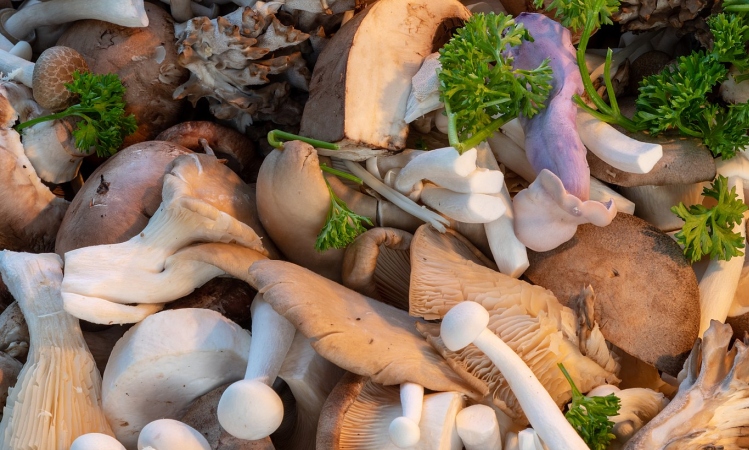
Our goal at Palash Blossom Estate is to rectify this misunderstanding and to make mushrooms an integral part of our diet by opening up possibilities of using mushrooms in our everyday Indian cuisine.
Mushrooms: our many sided friend

So far I have talked about mushrooms simply as a food item. The health benefits of mushrooms as a food item are well known: ranging from reishi mushrooms, also known as the 'mushroom of immortality' in China, famed for its anti-aging and anti-oxidant properties, to those of the shiitake and oyster mushrooms. From its low fat and carbohydrate content (essential to dieters) to high levels of proteins and life-nourishing micronutrients, mushrooms have them all and are hence called a super food. But there is much more to mushrooms than that.
To better understand the wide range of applications of mushrooms to everyday life, I quote an introductory paragraph from a survey article on mushrooms by S. T. Chang and S. P. Wasser entitled The Cultivation and Environmental Impact of Mushrooms:
"Mushrooms can be used as food, tonics, medicines, cosmeceuticals, and as natural biocontrol agents in plant protection with insecticidal, fungicidal, bactericidal, herbicidal, nematocidal, and antiphytoviral activities. The multidimensional nature of the global mushroom cultivation industry, its role in addressing critical issues faced by humankind, and its positive contributions are presented. Furthermore, mushrooms can serve as agents for promoting equitable economic growth in society. Since the lignocellulose wastes are available in every corner of the world, they can be properly used in the cultivation of mushrooms, and therefore could pilot a so-called white agricultural revolution in less developed countries and in the world at large. Mushrooms demonstrate a great impact on agriculture and the environment, and they have great potential for generating a great socio-economic impact in human welfare on local, national, and global levels."
Mushroom: the economic, social,
and ecological benefits
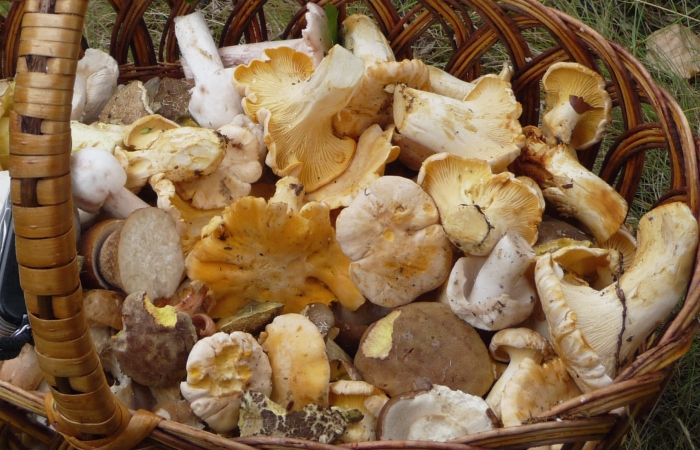
How can mushrooms have an impact on human welfare at a local, national and global level?
Even a cursory glance of the world around us will reveal that twenty-first century society is seriously threatened by various environmental and ecological problems, which include global warming, increasing pollution levels and diminishing non-renewable resources. Our world's inhabitants, still face, and will continue to face, three basic problems: (a) inadequate food supplies, (b) diminishing quality of health, and (c) increasing environmental deterioration. These three key underlying problems will affect the future wellbeing of humankind. This is where mushrooms have a role to play.
The great advantages of cultivating mushrooms as humankind's major food source for the future is best summarized by Chang and Wasser:
"The following statements summarize the significance of mushrooms in our drive towards alleviating poverty, enhancing human health, and arresting environmental degradation:
- Mushrooms can convert lignocellulosic waste materials into a wide diversity of products (such as food, dietary supplements, herbal medicines and cosmetics) that have multi-beneficial effects to human beings. In addition, mushroom cultivation can positively generate equitable economic growth.
- Mushrooms are relatively fast-growing organisms. Some tropical mushrooms can be harvested and consumed within 10 days after spawning. By the use of appropriate strains, mushrooms can be cultivated all year round. They can be cultivated using traditional farming techniques in rural areas, or by using highly industrialized technologies in urban and peri-urban communities.
- Mushroom cultivation can be labor intensive. Thus, the activity can generate new jobs, especially in tropical, less-developed countries.
- While land availability is usually a limiting factor for many types of primary production, mushroom cultivation requires relatively little land space. Actually, they can be stacked using shelf-like culture systems."
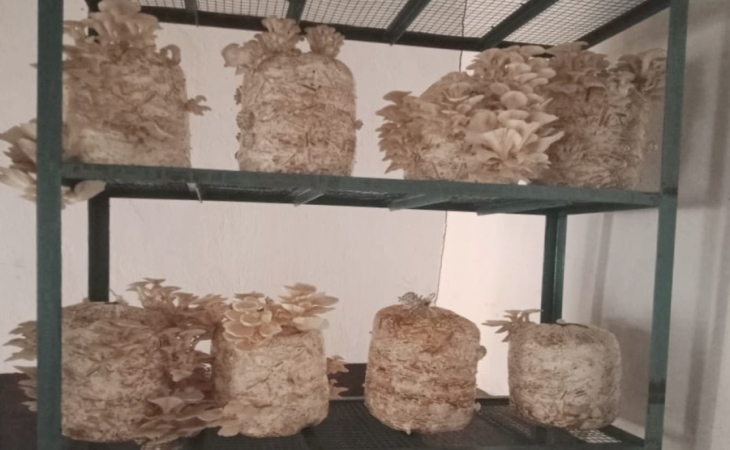
One of the great benefits of mushroom cultivation is that it is possible for obtain multiple crops in a year, and depending on local climatic conditions one may obtain 6-8 crops a year. Oyster mushrooms and paddy straw mushrooms are champions in this respect. This is in contrast to vegetables where 3-4 months or even more may elapse between the seeding and harvesting stage, or 4-5 months for cereal crops like wheat and rice. Fruit trees usually do not yield any fruits for the first five years and thereafter yield only one crop a year. The fast growing nature of mushrooms allows poor villagers to take on mushroom cultivation with minimum working capital needs.
Many activities connected with mushroom cultivation, like preparing spawn bags and harvesting ripe mushrooms from bags in the fruiting room, are inherently labour intensive and cannot be easily automated. For a labour surplus country like India, this can go a long way in tackling the problem of rural unemployment and underemployment.
Finally, mushroom cultivation can be a boon for a chronically land short country like India. The economic value added per square metre from mushroom cultivation can be an order of magnitude greater than that obtained from vegetables or cereals. This is because mushrooms can be easily grown in stacks or shelves, a form of vertical farming which is space efficient. In fact, if can be grown in mud huts or in unused parts of a rural house.
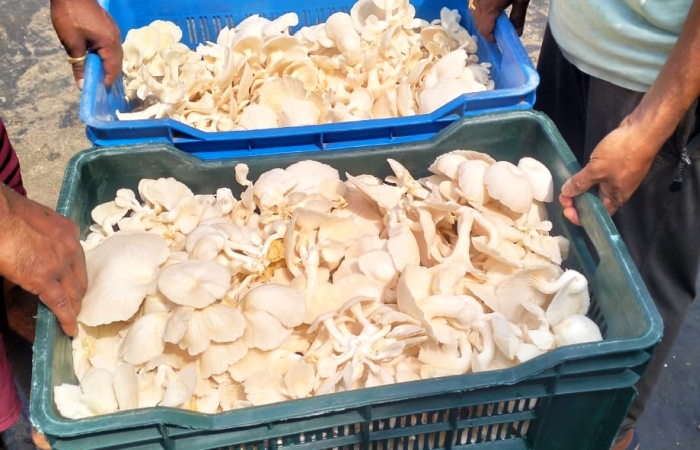
So much for the social and economic benefits of mushroom cultivation; now we turn to the ecological benefits. Mushrooms are unique in the sense that they grow on organic sold waste, namely lignocellulose, which otherwise has almost no economic value. Almost 70% to 90% of a cereal plant consists of organic sold wastes, which, because it has no economic value, is either thrown away or burnt causing very serious air pollution problems as the people of North India and the Indo-Gangetic Plains have learnt the hard way through long term health problems and a decline in life expectancy. Mushrooms, with other fungi, are presently the only organisms that can synthesize and excrete the relevant hydrolytic and oxidative enzymes that enable them to degrade complex organic substrates of organic solid wastes into soluble substances, which can then be absorbed by the mushrooms for their nutrients.
But the ecological benefits of mushrooms do not end there. The waste product of mushroom cultivation is spent mushroom substrate which can be composted in compost pits so that, over time, they yield high quality compost or vermicompost. This is where the almost miraculous symbiotic closed loop relationship between cereal plants and mushrooms come in: the waste product from growing cereals can be used for cultivating mushrooms while the waste product from cultivating mushrooms can be used for growing cereals!
It is these unique factors that only mushrooms possess that can help mankind realize Mahatma Gandhi's last dream.
------------
[ Click here ] to download a PDF version of The Mahatma's Last Dream - Overview and Benefits of Mushrooms.

